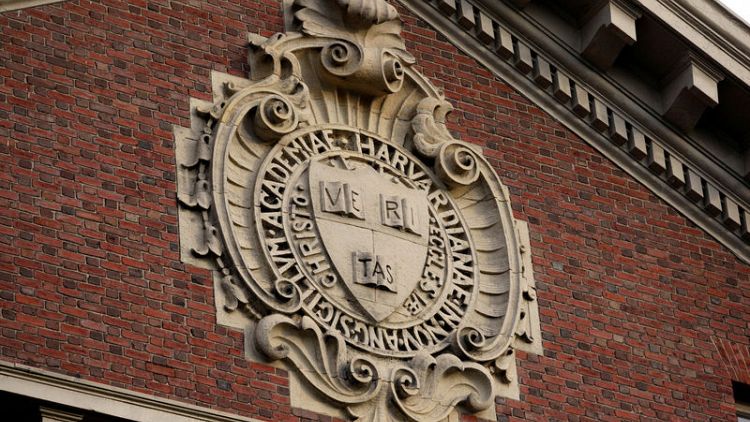By Ted Siefer and Nate Raymond
BOSTON (Reuters) - Harvard University defended its admissions policies on Friday against a group accusing it of discriminating against Asian-American applicants in the closing arguments of a trial that could change the role of race in U.S. college admissions.
The case in federal court in Boston has pitted the Ivy League school against Students for Fair Admissions, or SFFA, which was founded by an anti-affirmative action activist.
The SFFA's complaint against Harvard is backed by U.S. President Donald Trump's administration.
The non-jury trial before U.S. District Judge Allison Burroughs has provided a rare look into how the private university chooses about 1,600 students each year from about 40,000 applicants.
John Hughes, a lawyer for SFFA, argued to the judge that admissions data from Harvard showed a strong pattern of bias against Asian-Americans, particularly in terms of so-called "personal ratings," a measure of abstract qualities such as leadership skills and friendliness.
"That Asian Americans get worse personal ratings year after year is pretty strong evidence that racial bias has crept into the system," Hughes said.
William F. Lee, a lawyer for Harvard, said SFFA's claims were "rife with inconsistencies."
"The goal of SFFA is the elimination of all considerations of race on admissions," Lee said in his closing argument.
Harvard conceded that Asian-Americans indeed had on average received lower personal rating scores in recent years, but Lee maintained this was only one of many factors considered in admissions.
Asian-Americans on average scored higher than other racial groups on some factors, Lee said.
Legal experts have said the case has the potential to reach the U.S. Supreme Court, giving the newly-cemented five-member conservative majority a chance to bar the use of affirmative action to help minority applicants get into college.
In previous rulings on affirmative action, which aims to offset historic patterns of racial discrimination, the Supreme Court allowed colleges to include race as one factor among others in assessing applicants.
But SFFA alleges Harvard went further than the court has allowed by engaging in "racial balancing," and keeping Asian-American admissions at or under 20 percent annually in the years before SFFA sued in 2014.
Harvard, based in Cambridge, Massachusetts, denies the allegations and says its approach to promoting student body diversity is in keeping with Supreme Court precedent.
SFFA is headed by Edward Blum, an activist involved in other cases that have challenged the use of race in college admissions.
The U.S. Justice Department launched a related investigation of Harvard after Trump became president last year. It has backed SFFA's case, saying Harvard has not seriously considered race-neutral approaches to admissions.
(Reporting by Nate Raymond and Ted Siefer in Boston; Writing by Jonathan Allen; Editing by Bernadette Baum and Tom Brown)
